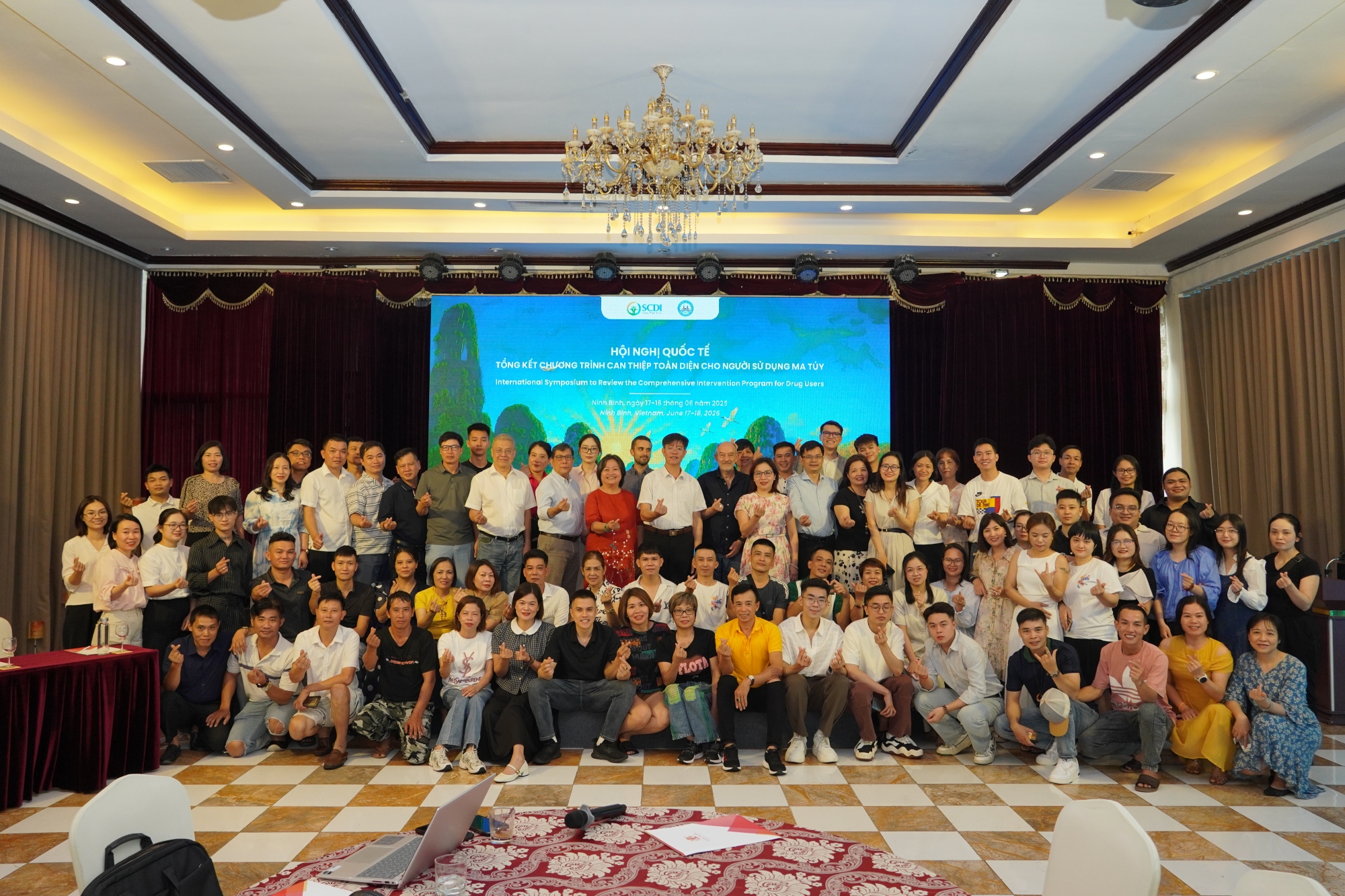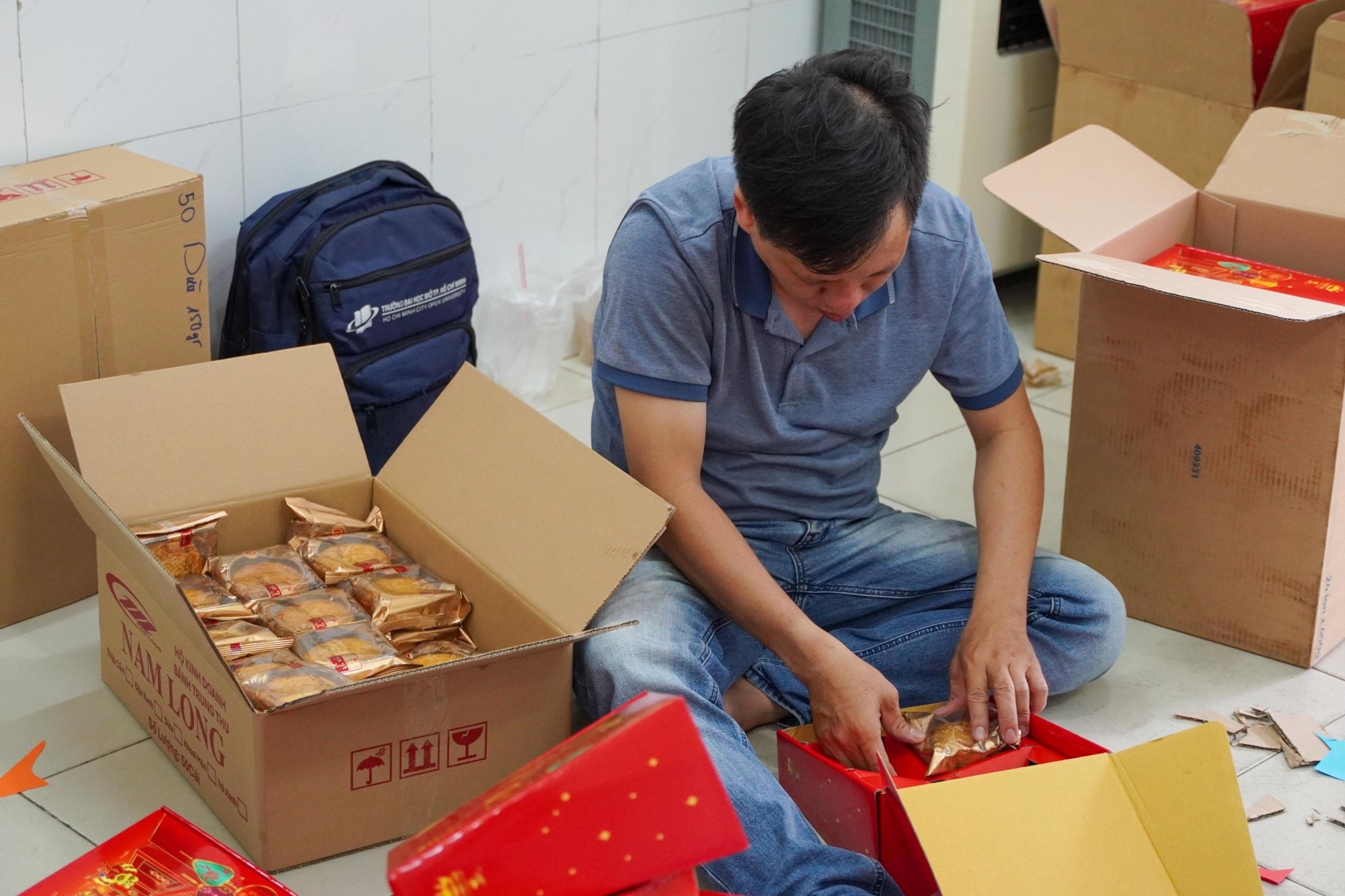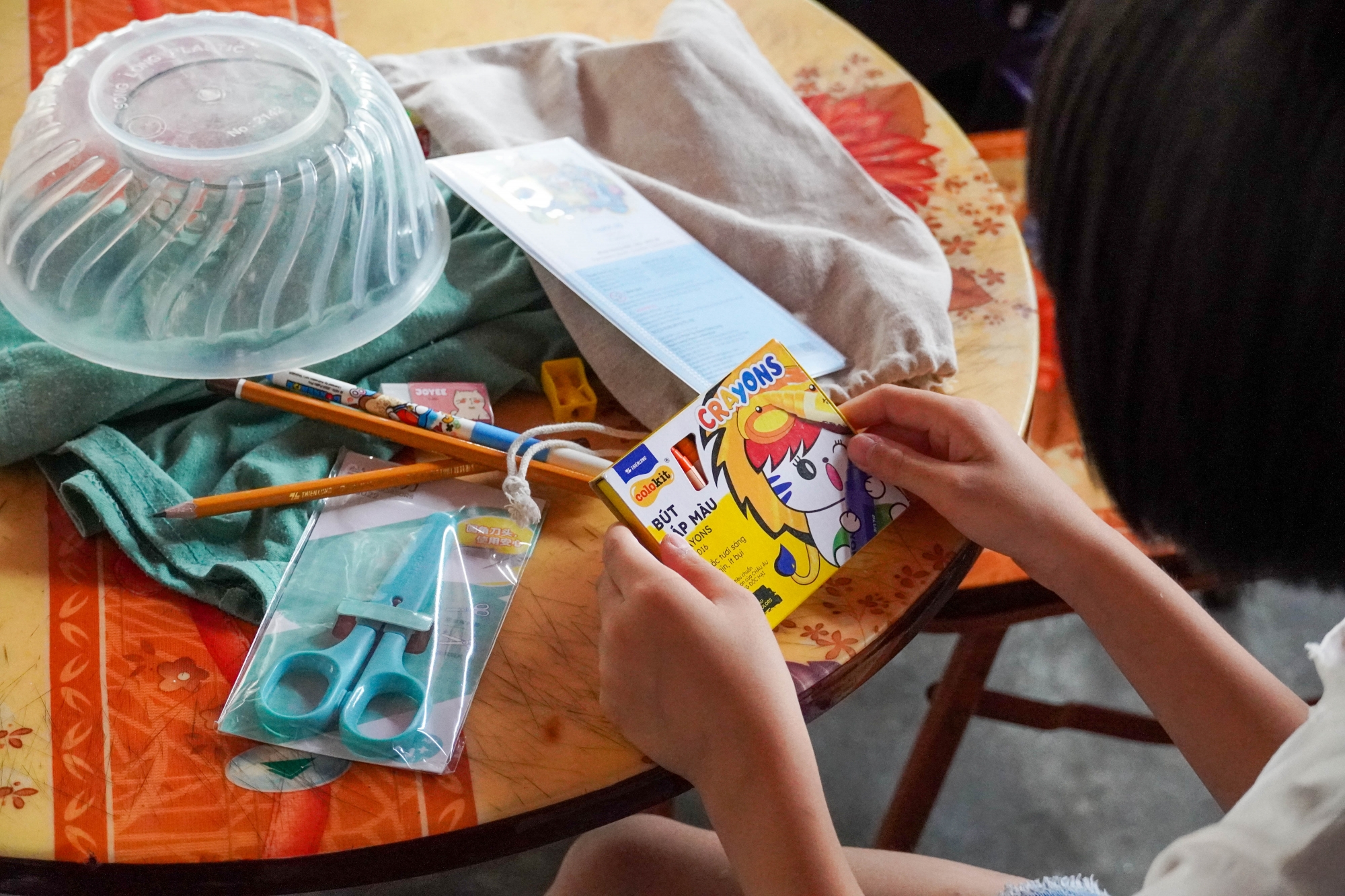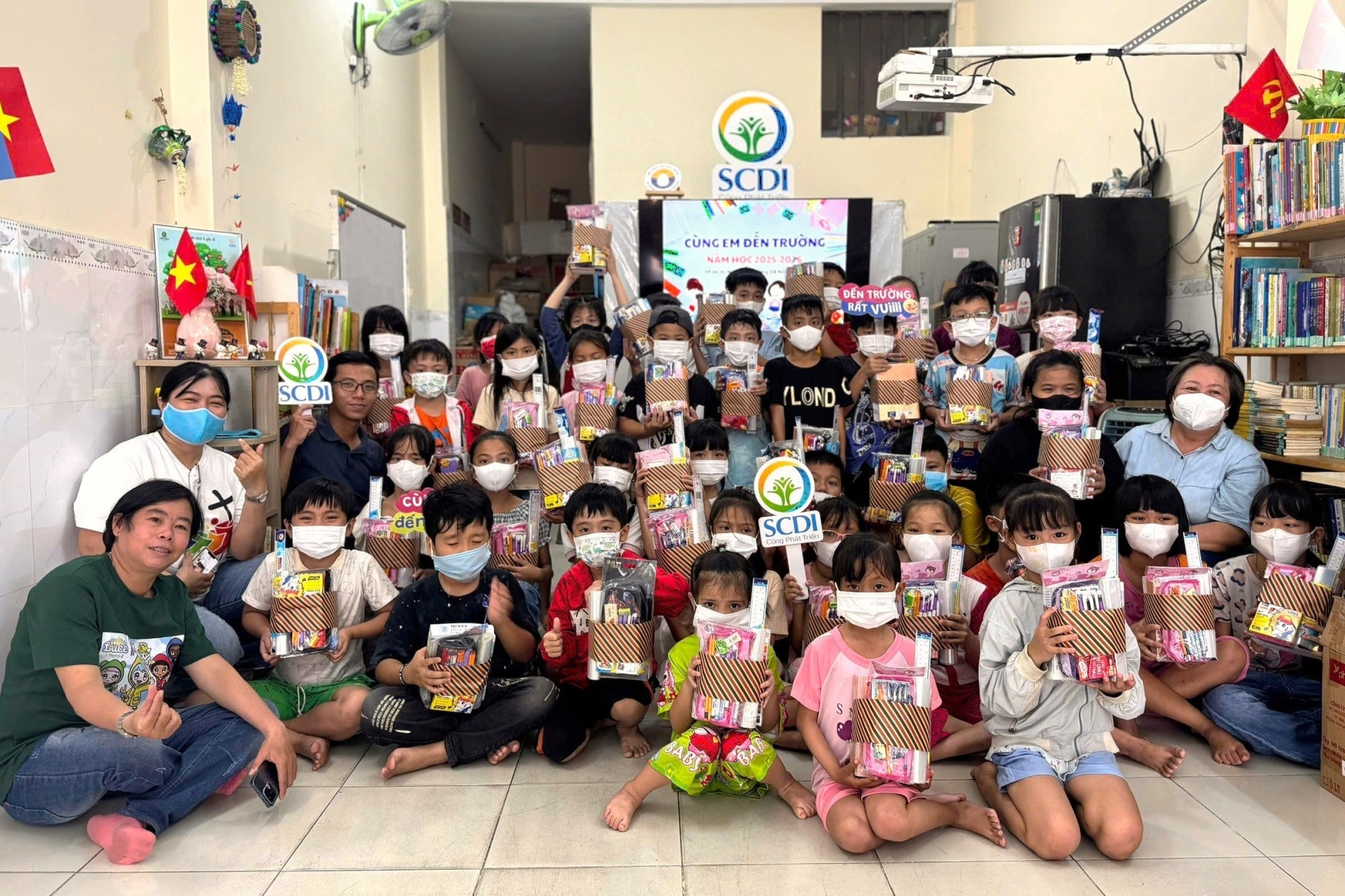On June 17 and 18, the Center for Supporting Community Development Initiatives (SCDI) successfully organized the International Symposium to review the Comprehensive Intervention Program for Drug Users in Ninh Binh. The symposium brought together the Deputy Director of the Ninh Binh Department of Health, the Director of the Ninh Binh CDC, representatives of partner agencies, experts, members of community-based organizations (CBOs), and representatives of vulnerable groups.
The symposium focused on discussions regarding substance use, reviewing the achievements of the project’s implementation, and proposing directions for preventive interventions, harm reduction, and improving the quality of life for people who use substances.
Photo: Th.S. Nguyễn Thị Hường, Deputy Director of the Ninh Binh Department of Health, sharing insights at the symposium.
Photo: Th.S. Lê Hoàng Nam, Director of the Ninh Binh CDC, speaking during the opening session.
Photo: Ms. Nhâm Thị Tuyết Thanh, Deputy Director of SCDI, delivering the opening speech at the symposium.
Mental health - the foundation for sustainable recovery
Mental health (MH) is considered a core element in supporting the sustainable recovery of people who use substances, and was a prominent theme throughout the symposium. Experts at the event emphasized that while medical treatment is essential to minimizing harm, it is not the sole solution. The prevalence of mental health issues among people who use substances is particularly high, especially among adolescents. The growing trend of substance use among younger populations poses a significant challenge, with severe consequences not only for mental health but also for learning, memory, and social integration.
Photo: Dr. Lê Công Thiện from the Department of Psychiatry, Hanoi Medical University, and the Mental Health Institute of Bach Mai Hospital, presenting on trends in polydrug and methamphetamine use in Vietnam.
Substance use among this group often originates from adverse childhood experiences (ACEs), such as abuse, domestic violence, or neglect, leading them into a cycle of addiction. Addressing only surface issues without tackling the root causes makes it difficult for people who use substances to achieve sustainable recovery. Therefore, in addition to medical treatment, it is necessary to establish a comprehensive support ecosystem, including mental health care, building healthy habits, employment connections, and promoting social reintegration. This is a crucial foundation for the long-term recovery and development of people who use substances.
Photo: Ms. Nguyễn Minh Trang, Manager of SCDI's Children & Youth Program and Addiction Treatment & Harm Reduction Program, presenting an in-depth analysis of the relationship between mental health and substance use.
Effective collaborative models - evidence from practice
One exemplary model shared at the symposium was the close collaboration between CBOs and Hai Phong Psychiatric Hospital. Thanks to a welcoming and flexible reception process and the development of customized procedures for receiving, examining, and treating SCDI’s clients (respecting clients’ rights, streamlining processes, and shortening wait times), nearly 100% of clients returned for follow-up visits.
Similarly, in Ninh Binh, close collaboration between hospitals and the community also reassured clients, encouraging them to return for treatment, with follow-up rates nearing 100%.
This serves as evidence that the community-based mental health intervention model implemented by SCDI in project areas has delivered positive impacts. Community group members play the role of "first companions," not only connecting clients to medical services but also listening, advising, and providing ongoing support throughout the treatment process.
Photo: Ms. Nguyễn Thùy Linh from Harmonrise Social Enterprise sharing the results of a comprehensive evaluation of community capacity-building and intervention implementation.
Photo: Ms. Vũ Thị Hiền, Project Coordinator at SCDI, sharing about SCDI’s comprehensive interventions, such as maintaining healthy habits and using happiness measurement tools.
Proposed solutions and future directions
The symposium also proposed various solutions to enhance collaboration between CBOs and doctors, such as establishing trusted communication channels, anonymizing client data, sharing information, building integrated collaboration protocols, and providing quick feedback on clients’ treatment progress.
It was also suggested that regular coordination meetings be held among doctors, groups, and officers to enhance collaboration effectiveness. Additionally, healthcare professionals expressed a desire to deepen their knowledge of psychology, gain a better understanding of legal frameworks, stay updated on new substances and active ingredients in the market, expand specialized teams, and increase treatment costs and quotas for patients.
Furthermore, the symposium featured discussions on SOGIESC, as well as intersectional approaches and gender equality, to broaden perspectives among partners and community groups.
Photo: Mr. Nguyễn Thanh Hùng, SCDI’s Communications Manager, sharing about SOGIESC and the role of intersectional approaches.
The symposium marked a milestone in the journey of supporting people who use substances, while reaffirming a commitment to continued efforts toward deeper, more comprehensive, and more approachable interventions in the future.
SCDI extends heartfelt gratitude to all individuals and organizations who have joined hands in building a holistic healthcare ecosystem, where every individual is central and no one is left behind.


.JPG)
.JPG)
.JPG)
.JPG)
.JPG)
.JPG)
.JPG)
.JPG)









